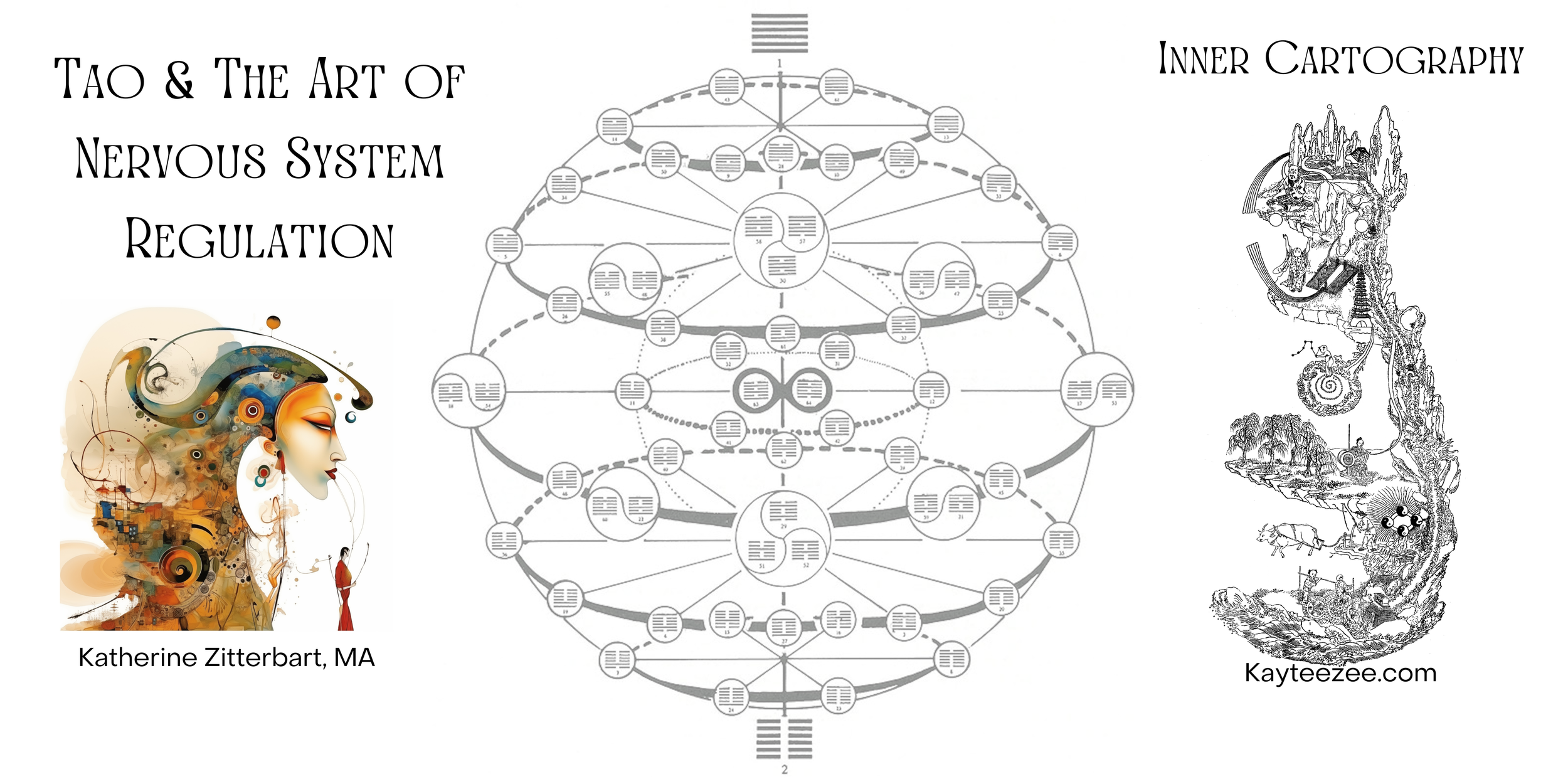The Five Shen in Traditional Chinese Medicine: Integrating Ancient Wisdom with Modern Healing
Introduction
In Traditional Chinese Medicine (TCM), the concept of Shen encompasses the spirit or mind and is divided into five distinct aspects: Shen, Yi, Po, Zhi, and Hun. These five Shen represent different aspects of the human spirit and are closely associated with the organs, emotions, and overall health. This whitepaper explores the Five Shen, their relationship with the Eight Extraordinary Vessels, and the Three Ancestries, and how Neidan (Internal Alchemy) can non-invasively treat psychoemotional pain, especially in the context of epigenetics and Complex Post-Traumatic Stress Disorder (CPTSD).
Essential Qualities of the Shen
Shen (Spirit of the Heart)
Attributes: Consciousness, mental functions, emotional well-being.
Emotions: Joy and love.
Element: Fire.
Healing Sound: HAAAAA.
Yi (Spirit of the Spleen)
Attributes: Intellect, thought processes, memory, focus.
Emotions: Trust and worry.
Element: Earth.
Healing Sound: WHOOOOO.
Po (Spirit of the Lungs)
Attributes: Corporeal soul, bodily instincts, physical sensations.
Emotions: Grief and courage.
Element: Metal.
Healing Sound: SSSSSS.
Zhi (Spirit of the Kidneys)
Attributes: Willpower, determination, drive.
Emotions: Fear and calm.
Element: Water.
Healing Sound: CHOOOOO.
Hun (Spirit of the Liver)
Attributes: Ethereal soul, creativity, inspiration, planning.
Emotions: Anger and forgiveness.
Element: Wood.
Healing Sound: SHHHHHH.
The Five Shen and the Eight Extraordinary Vessels
The Eight Extraordinary Vessels are deeply connected with the Five Shen, as they help regulate and harmonize the flow of Qi and Blood, impacting mental and emotional well-being. Each vessel influences different aspects of Shen:
Du Mai (Governing Vessel): Enhances mental clarity and consciousness.
Ren Mai (Conception Vessel): Stabilizes emotional and nurturing aspects.
Chong Mai (Penetrating Vessel): Balances emotional intensity.
Dai Mai (Belt Vessel): Helps in integrating and coordinating emotions.
Yang Qiao Mai and Yin Qiao Mai (Yang and Yin Heel Vessels): Regulate the balance of active and passive emotions.
Yang Wei Mai and Yin Wei Mai (Yang and Yin Linking Vessels): Harmonize emotional responses and stability.
The Three Ancestries and Epigenetics/CPTSD
The Three Ancestries—Jing (essence), Qi (vital energy), and Shen (spirit)—correlate with the Bio-Psycho-Social model of health. Understanding how these ancestries affect our epigenetics and responses to trauma is crucial for healing.
Jing (Bio): Genetic heritage and foundational energy.
Qi (Psycho): Vital energy influencing mental and emotional health.
Shen (Social): Spiritual and emotional well-being, facilitating connection and joy.
Epigenetics shows how trauma and chronic stress can alter gene expression, leading to lasting impacts on mental and physical health. TCM offers pathways to address these issues by harmonizing Jing, Qi, and Shen.
Treating Psychoemotional Pain Non-Invasively with Neidan
Neidan, or Internal Alchemy, focuses on internal processes to cultivate inner harmony and spiritual transformation. This practice can non-invasively treat psychoemotional pain, especially for those with CPTSD.
Key Principles of Neidan
Refinement of Jing into Qi: Enhancing physical health and vitality.
Transformation of Qi into Shen: Cultivating emotional resilience and mental clarity.
Union of Shen with the Dao: Achieving spiritual enlightenment and inner peace.
Application in Treating Psychoemotional Pain
Neidan practices include meditation, breath control, and visualization techniques to balance the Five Shen and the Eight Extraordinary Vessels.
Meditative Practices: Calm the mind, regulate emotions, and restore mental clarity.
Breath Control: Deep, regulated breathing supports nervous system regulation and emotional stability.
Visualization: Imagery practices facilitate the release of traumatic memories and promote well-being.


